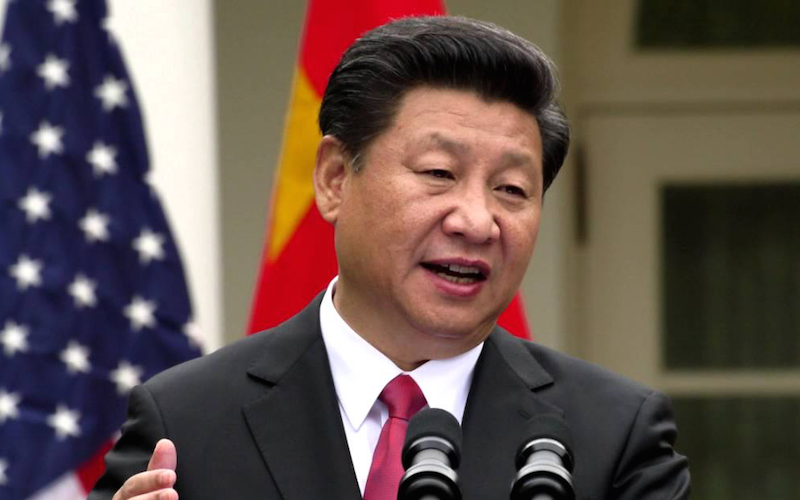
Concerns over Rising China’s Territorial Claims in South China Sea
The concerns whether China is evolving as a responsible stakeholder or an assertive player within the international community seem to be invigorated in the backdrop of the recent Chinese decision not to back down from its territorial claims in the South China Sea in defiance of The Hague tribunal’s decision. China has been asserting its claim over the disputed territories and at times, has not hesitated to flex its muscles to lay its claim in the South China Sea more forcefully. Beijing’s territorial claims in the South China Sea and its assertion of indisputable sovereignty there embody not only its intention of gaining control over oil and mineral resources at the expense of other major powers and neighbors including Vietnam, Malaysia and Philippines but they imply its military designs as well.
It is noteworthy that Beijing has forcibly occupied the Scarborough Shoal claimed by the Philippines and declined to accept the jurisdiction of the International Court of Justice. The ongoing reclamation work on reefs in the South China Sea, creation of artificial islands and building of airstrips on them could be used to serve Beijing’s military purposes.
China has used limited force, seized fishing boats and arrested sailors from neighboring countries to assert its claim. However, this case of Chinese adventurism is related to the larger issue concerning Beijing’s evolution as a conformist or revisionist power.
There are many experts on Chinese foreign policy who believe that Beijing’s participation in the international institutions has increased in the post-Mao period and has been showing greater respect towards international norms since then. In their perception, Beijing has become a ‘responsible stakeholder’ within the international community.
The experts point to Chinese interests behind its willingness to be more participative. They argue that China, while rising, is bound to face problems like scarcity of resources and the deterioration of environment and economic imbalances. To overcome these problems, China needs the cooperation of the international community. They further argue that there is a symbiotic relationship between China’s internal socio-economic reforms and peaceful international environment. Therefore, to make its reforms successful it has to adopt peaceful diplomacy and its peaceful development is contingent upon the stability of the current international order.
The Chinese decision to increase the number of troops to UN peace-keeping operations, its cooperation with the international community to fight the East Asian financial crisis and global financial crisis in 2008, its increasing volume of aid to developing countries without conditions, its participation in the counter-piracy operations in Somalia by sending naval fleets and its commitment to share intelligence and conduct humanitarian rescue operations in coordination with other countries are often cited in favor of the Chinese claim that it is increasingly preparing itself for a role of a responsible stakeholder.
The flipside to the claims that China is evolving into a responsible stakeholder is nevertheless worth considering. While Beijing argues that it is a developing country and therefore entitled to all the benefits that other developing countries get in the UN, it has shown no interest in formally identifying itself with the Non-Aligned Movement (NAM) and the G-77, the largest multilateral bodies of the developing countries. China is content with an observer status in NAM and major statements of G-77 are issued as position papers on behalf of ‘G-77 and China.’
Although China has increased its participation in the peace-keeping operations of the UN, it still makes substantially less troop contribution to the operations in contrast to less developed countries such as India, Bangladesh and Pakistan. Beijing was least interested in squandering its resources both in terms of men and material by engaging itself in stabilizing weak states and taking on terrorism in neighboring countries. For instance, Beijing had a free ride on the NATO and American operations in Afghanistan until it was involved in brokering peace between the Afghan government and the insurgents to defend its economic investments in Afghanistan and implement its mega one belt one road project along with Pakistan.
Beijing was unwilling to disrupt its ally Rawalpindi’s channel of communication with the radical groups. Similarly, New Delhi’s move to question Islamabad and seek UN Security Council sanctions against Hizbul Mujahideen Chief Syed Salahuddin, the mastermind of the Mumbai attacks, was blocked by Beijing. Beijing’s failure to treat crisis situations elsewhere in the world seriously as reflected in its meager contribution to the Tsunami affected states, its indifference to the earthquake in Haiti and its failure to maintain international standards on intellectual property rights within its territory leading to cases of duplication, piracy and counterfeits question whether it is a serious responsible stakeholder. Adventurist policies in the neighborhood engender concerns among major powers and neighbors that Beijing is becoming a difficult and unpredictable player.

